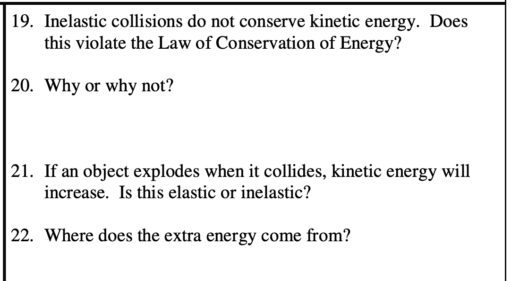In recent decades, the discourse surrounding global warming has intensified dramatically, prompting both scientific inquiry and public debate. Central to this discussion is a pressing question: how many climatologists affirm the existence of global warming? This inquiry is not merely statistical; it encapsulates a broader examination of scientific consensus, the nature of climate science, and the implications for our planet’s future.
To comprehend the scientific verdict on global warming, one must first appreciate the term “climatologist.” These professionals are scholars and practitioners dedicated to understanding atmospheric phenomena, analyzing data, and modeling climate systems. Their insights are critical for discerning shifts in climatic patterns over time. Within this community, there exists an overwhelming majority—estimates suggest that 97% to 98% of climatologists agree that climate change is a significant and human-induced phenomenon.
This high level of consensus arises from extensive research, bolstered by observational data and advanced modeling techniques. Various studies have surveyed climate scientists, aiming to quantify their beliefs regarding climate change. The results consistently indicate an unambiguous alignment among experts. For instance, a seminal paper published in a prestigious scientific journal examined thousands of peer-reviewed articles on climate science, revealing that the vast majority endorsed the reality of anthropogenic global warming.
To appreciate why climatologists are so unified in their stance, one must delve into the nature of the evidence that underpins climate science. Over the past century, climatology has evolved into a rigorous discipline encompassing an array of methodologies. These include satellite observations, climate modeling, and long-term temperature analyses. Data indicate a pronounced increase in global temperatures, accompanied by observable ramifications such as rising sea levels, shrinking ice sheets, and altered weather patterns.
What may seem to the layperson as abstract numbers on a chart become profoundly consequential upon reflection. The intricate tapestry of climate data reveals a stark narrative. The Intergovernmental Panel on Climate Change (IPCC) has synthesized a multitude of studies, delivering critical assessments that underscore the human role in climate change. Such documents receive scrutiny and validation through peer review—an integral facet of scientific discourse ensuring the reliability of findings.
However, the quantification of climatologists’ beliefs is not solely numerical. It reflects a profound understanding of the underlying complexities of the climate system. Climate is influenced by a multitude of factors, from greenhouse gas emissions to natural variability. Climatologists appreciate this intricate network, assessing both short-term changes and long-term trends. Their expertise allows them to anticipate future scenarios, underscoring the urgency of addressing global warming.
Despite the prevailing scientific consensus, to suggest that all climatologists share identical views would be disingenuous. While the overwhelming majority acknowledges climate change and its dangers, nuances exist within the field. Some experts may differ in their interpretations of data or the severity of potential impacts. Furthermore, the conversation surrounding climate adaptation and mitigation strategies encompasses a spectrum of opinions. These discussions are not a reflection of skepticism but rather an exercise in scientific inquiry—a hallmark of a vibrant scientific community.
The fascination with climatology extends beyond numbers and data—it strikes at the core of human morality and responsibility. As nations grapple with the increasing prevalence of climate-related disasters, the urgency for action becomes palpable. Climatologists, through their research, advocate for informed decision-making, urging policymakers to prioritize sustainable practices and reduce carbon emissions. Their collective voice serves as a clarion call, urging societies to reconsider their trajectory before it is irrevocably altered.
Civic engagement and public awareness play pivotal roles in this narrative. The profound challenge of climate change necessitates that the insights of climatologists permeate beyond academic walls and into the fabric of everyday life. It is essential for the public to grasp not only the scientific findings but also the qualitative and ethical implications of these conclusions. The responsibility extends to individuals, businesses, and governments alike—an interconnected web from which solutions can emerge.
Furthermore, the media’s portrayal of climate science deserves scrutiny. Misrepresentation and dissemination of misinformation can dilute public understanding and stymie progress. It is imperative that the media engage with scientists responsibly, amplifying credible narratives while sidestepping sensationalism. In doing so, a more informed public can advocate for policies rooted in scientific reality, rather than conjecture.
In recent years, a growing movement of climate activism has arisen, propelled by the urgency encapsulated in climatologists’ findings. This movement underscores an intrinsic understanding that climate change is not just an environmental issue, but an existential one that intersects with social justice, equity, and economic viability. The voices of climatologists contribute significantly to this discourse, framing a narrative that compels action on both local and global scales.
In conclusion, the scientific consensus around global warming is robust, with an overwhelming majority of climatologists unequivocally affirming the reality of climate change. This consensus is founded on rigorous research and empirical data, offering a clarion call to address the multifaceted challenges posed by climate disruption. As we delve into the depths of climate science, it is imperative that public understanding and policy align with scientific insight to pave the way toward a sustainable future. The urgency of this mission is echoed not just by climatologists, but by the collective needs of humanity and the planet we inhabit.







